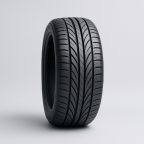
5 New 2024 Driving Laws for UK Drivers to be Aware of
The world of driving is rapidly changing. In recent years, governments around the globe have been taking steps to mitigate the effects of diesel emissions on the environment, improve road safety, and promote sustainable transportation. The United Kingdom is no exception, and several new driving laws are set to take effect in 2024.
1. Zero Emission Vehicle (ZEV) Mandates for Car Manufacturers
The UK government has committed to reducing greenhouse gas emissions, making the transport sector one of the most significant contributors. The government aims to achieve its target by gradually phasing out fossil-fuel vehicles in favour of ZEVs. The government has announced that car manufacturers must ensure that at least 22% of new cars sold in 2024 are completely zero-emission.
This target is expected to increase gradually, with a target of 80% of new cars to be completely zero-emission by 2030 and 100% by 2035. This move will encourage manufacturers to increase production capabilities for electric vehicles (EVs) and hydrogen-fuelled cars while altering their existing vehicle models to make them more climate-friendly.
Progressing from the Dieselgate scandal of 2015, renowned car manufacturers such as were implicated. Volkswagen, Daimler, and BMW’s involvement in the diesel emission scandal triggered a comprehensive investigation and heightened vigilance regarding deceptive practices within the industry. More information about the fines and lawsuits they faced can be found on Emissions.co.uk.
While the mandates are a positive step towards a more sustainable future, they may have implications for drivers who own petrol or diesel cars. These cars will still be legal to drive, but they may become less desirable in the eyes of buyers as people increasingly opt for zero-emission vehicles.
Drivers in the market for a new car will have more options than ever, with a broader selection of electric, hybrid, and hydrogen fuel cell vehicles available. However, these cars may have a higher price tag, which could be a barrier for some drivers.
2. Increase in Vehicle Excise Duty Rates
Another change that will affect drivers in the UK is an increase in vehicle excise duty rates. From 2024, cars with higher CO2 emissions will be subject to higher tax rates, up to £100 or more. The exact details of the new tax rates have yet to be announced, but drivers of petrol and diesel cars will likely be hit the hardest.
3. Driving License for British Expats in Portugal
British foreigners residing in Portugal can still hold a UK driving licence but must meet new requirements to keep it valid. Starting January 1, expats can retain their UK driving licence if they meet specific criteria:
- Must be 60 years old or below.
- Have a valid photo card.
- Recent licensing updates or acquisitions within the last 15 years.
- Restricted usage to vehicle categories A and B exclusively.
- Eligibility for driving privileges should not be compromised.
Failure to meet these requirements means they must initiate the licence exchange process by March 2024 to continue driving legally. Those who fail could be considered driving without a valid licence, leading to fines, points on the licence, or even imprisonment.
4. Accessibility for DVLA Services
In November 2023, a new contract allowed individuals to access DVLA services at Post Offices across the UK until March 31, 2025. This move aims to increase accessibility and convenience for motorists across the country.
The Post Office will offer services for vehicle tax and 10-year renewal products for the DVLA. This change will make it easier for drivers to manage their vehicle tax and registration, reducing congestion in DVLA offices. The new agreement has not included International Driving Permits (IDPs). As a result, IDPs will only be available for purchase until March 31, 2024.
5. New Low-Emission Zones in Scotland
Three major Scottish cities, Glasgow, Edinburgh, and Aberdeen, are taking decisive action against climate change by introducing strict low-emissions zones (LEZ) charges. These charges, aimed at reducing carbon emissions, improving air quality, and safeguarding public health, will come into effect in June 2024. The schemes, introduced in 2022, will commence charging in mid-2024 after a two-year grace period.
Under the new scheme, polluting models will be banned from driving on the streets within the LEZ. Violators of this rule will face penalty charge notices (PCN). However, certain vehicles, such as those for people with disabilities (Blue Badge holders) and emergency services vehicles, will be exempted from the charges.
To ensure compliance with low emissions standards, vehicles that do not meet the requirements will be required to pay £60 for each entry into the LEZ. This initiative represents a crucial step in creating cleaner and healthier urban areas.
As we look ahead to these changes, drivers must prepare and take action to ensure they are knowledgeable and compliant regarding these new laws. Failure to comply with these driving laws can be costly, with associated fines and the potential loss of driving privileges. Therefore, keeping informed about these changes and their implications will help drivers prepare for the future and be safer on the roads.













